
A stockbroker is an individual or company that buys and sells stocks and other investments for a financial market participant in return for a commission, markup, or fee. In most countries they are regulated as a broker or broker-dealer and may need to hold a relevant license and may be a member of a stock exchange. They generally act as a financial advisor and investment manager. In this case they may also be licensed as a financial adviser such as a registered investment adviser.

London Stock Exchange (LSE) is a stock exchange in the City of London, England, United Kingdom. As of August 2023, the total market value of all companies trading on the LSE stood at $3.18 trillion. Its current premises are situated in Paternoster Square close to St Paul's Cathedral in the City of London. Since 2007, it has been part of the London Stock Exchange Group. The LSE is the most-valued stock exchange in Europe as of 2023. According to the 2020 Office for National Statistics report, approximately 12% of UK-resident individuals reported having investments in stocks and shares. According to the 2020 Financial Conduct Authority (FCA) report, approximately 15% of UK adults reported having investments in stocks and shares.
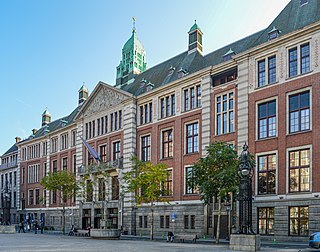
Euronext N.V. is a pan-European bourse that provides trading and post-trade services for a range of financial instruments.

The Securities Exchange Act of 1934 is a law governing the secondary trading of securities in the United States of America. A landmark piece of wide-ranging legislation, the Act of '34 and related statutes form the basis of regulation of the financial markets and their participants in the United States. The 1934 Act also established the Securities and Exchange Commission (SEC), the agency primarily responsible for enforcement of United States federal securities law.
SIX Swiss Exchange, based in Zürich, is Switzerland's principal stock exchange. SIX Swiss Exchange also trades other securities such as Swiss government bonds and derivatives such as stock options.
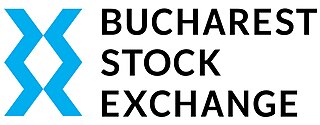
The Bucharest Stock Exchange is the stock exchange of Romania located in Bucharest. In 2023, the BVB's market capitalization increased by 52.7% to $64.9 billion. As of 2023, there were 85 companies listed on the BVB.

A financial adviser or financial advisor is a professional who provides financial services to clients based on their financial situation. In many countries, financial advisors must complete specific training and be registered with a regulatory body in order to provide advice.

The Wiener Börse AG is a bourse situated in Vienna, Austria. The exchange owns and operates the Prague Stock Exchange, and holds stakes in energy exchanges and clearing houses. It provides market infrastructure to other exchanges in Central, Eastern, and Southeastern Europe, and collects and distributes stock market data and calculates the most important indices of the region. The Austrian Traded Index (ATX), the leading index of Wiener Börse, tracks the price of its blue chips in real time. The ATX composition is updated every March and September, mainly based on a stock's capitalized free float and trading volumes. The Vienna Stock Exchange also maintains a market for fixed income securities, with more than 13,000 active bonds from 38 countries and a total volume of €720bn as at May 2023.
NYSE Euronext, Inc. was a transatlantic multinational financial services corporation that operated multiple securities exchanges, including the New York Stock Exchange, Euronext and NYSE Arca. NYSE merged with Archipelago Holdings on March 7, 2006, forming NYSE Group, Inc. On April 4, 2007, NYSE Group, Inc. merged with Euronext N.V. to form the first global equities exchange, with its headquarters in Lower Manhattan. The corporation was then acquired by Intercontinental Exchange, which subsequently spun off Euronext.
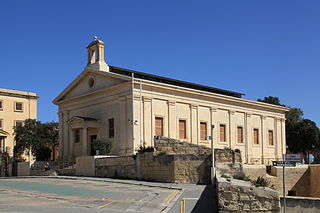
The Malta Stock Exchange, originally known as the Casino della Borsa, is the stock exchange of the island nation of Malta. Since being set up in 1992, the Exchange has been key to the raising of capital for the private sector through the issue of corporate bonds and equity while virtually all the national debt of Government of Malta has been issued in the form of Malta Government bonds and treasury bills that are listed and traded on the secondary market.
BATS Chi-X Europe is a London-based, order-driven pan-European equity exchange that has been a subsidiary of BATS Global Markets since 2011. It is a low latency, low cost alternative to exchange traded equities and exchange-traded funds (ETFs) that are listed on primary exchanges such as the London Stock Exchange, Frankfurt Stock Exchange, Euronext and OMX.
A multilateral trading facility (MTF) is a European Union regulatory term for a self-regulated financial trading venue. These are alternatives to the traditional stock exchanges where a market is made in securities, typically using electronic systems. The concept was introduced within the Markets in Financial Instruments Directive (MiFID), a European Directive designed to harmonise retail investors protection and allow investment firms to provide services throughout the EU.

The Danish Financial Supervisory Authority (DFSA) is the financial regulatory authority of the Danish government responsible for the regulation of financial markets in Denmark.
Foreign exchange regulation is a form of financial regulation specifically aimed at the Forex market that is decentralized and operates with no central exchange or clearing house. Due to its decentralized and global nature, the foreign exchange market has been more prone to foreign exchange fraud and has been less regulated than other financial markets.

Plus500 is a global fintech firm providing online trading services in contracts for difference (CFDs), share dealing, futures trading and options on futures. The company has subsidiaries in the UK, Cyprus, Australia, Israel, Seychelles, Singapore, Bulgaria, Estonia, the United States and Japan. It is listed on the London Stock Exchange and is a constituent of the FTSE 250 Index.
The International Stock Exchange (TISE) is a stock exchange headquartered in St. Peter Port, Guernsey. TISE provides a listing facility for international companies to raise capital from investors worldwide. It offers a regulated marketplace, with globally recognisable clients and a growing product range, from within the European time zone but outside the EU.
William Francis Redford is a British businessman. He is the chief executive, since October 2014, of Eligere Investments plc, a company formerly traded on the GXG Market in Denmark.
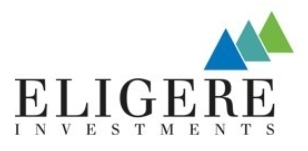
Eligere Investments plc was a company that traded in environmental services such as the generation, provision and distribution of voluntary carbon offsets. The company received a warning from the UK's Financial Conduct Authority that it may be providing financial services or products in the UK without authorisation. The company became insolvent in 2017 and was liquidated in April 2020.
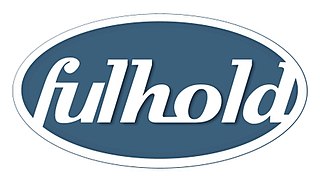
Fulhold Pharma Limited is a British pharmaceutical company. It produces the patented CarboHydrate Derived Fulvic Acid (CHD-FA) and formulations containing this product.
Stock market equivalence is granted by the European Union to those countries whose stock markets are deemed to be 'equivalent' to those of the EU countries. On 3 January 2018, the EU implemented the "Markets in Financial Instruments Directive II" which required all European investment firms & traders to trade the shares of a company listed in the EU on a stock exchange within the EU or an equivalent third country exchange. In order to gain equivalence, the trading venues of the concerned country should have a high level of investor protection and sound mechanisms to deal with insider trading. The main purpose of this measure is to protect the interests of investors based in the EU. Analysts have called it a pioneer in financial regulation with the potential to restructure the global financial system. As of 1 July 2019, only three jurisdictions had been granted equivalence: the United States of America, Australia and Hong Kong. Switzerland too was granted equivalence, but only temporarily, and the EU announced in early May 2019 that it would not renew equivalence for Switzerland after 1 July 2019. This was part of the wider Swiss-EU trade dispute.












